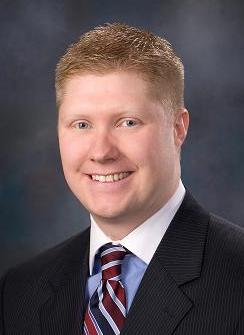When Martin Luther nailed his theses to the door of Wittenburg Church, it was the beginning of religious reformation. Today, with the proliferation of blogs, especially by elected officials, we are seeing a new sort of reformation, a political reformation.
Most theologians mark the Protestant Reformation as the time in which the masses were able to have access to the Bible in a way that they could understand it. The Bible, which is referred to by Christians as "the Truth" has many parallels with blogging. Consider the change of mainstream media in the United States, which has unmistakably and undeniably trended toward sensationalism. In the process, much the truth has been lost. Many politicians have adapted to this trend and sought to guard their own intentions and perspectives in the hope to appeal to the superficialism that has captured American media.
This lack of authenticity, I believe, has also been a major cause of dissatisfaction with government and politicians. People yearn for authenticity, they want to know that when a politician says something it is hasn't gone through hundreds of edits and screened by a public relations firm. Blogging by virtue of its rawness can serve as the direct link between constituents and their elected officials. With a blog, you get to hear it from the horse's mouth. Sometimes what you read on a blog may rub you the wrong way. This, ultimately is the double-edged sword of blogging. However, for a blog to maintain its value, it must be unscripted, unrehearsed and real. This "realness" is what makes a blog, a blog. It is the new horizon in which the truth, from the perspective of the author is only a few keystrokes a way. In short, blogging is the political reformation.
Sunday, January 13, 2008
Subscribe to:
Post Comments (Atom)


1 comment:
You said: "Most theologians mark the Protestant Reformation as the time in which the masses were able to have access to the Bible in a way that they could understand it."
What does this even mean? The Monsee Fragments (Bavarian German), for instance, date as early as the 8th century. Such manuscript versions were numerous, and continued to be so even after the invention of printing. There were about 18 printed editions of the Bible in German before Martin Luther's version. What do you suppose kept the "masses" from understanding it?
Well before Luther, the publisher of the Cologne [German] Bible [1480] wrote:
"All Christians should read the Bible with piety and reverence, praying the Holy Ghost, who is the inspirer of the Scriptures, to enable them to understand . . . The learned should make use of the Latin translation of St. Jerome; but the unlearned and simple folk, whether laymen or clergy . . . should read the German translations now supplied, and thus arm themselves against the enemy of our salvation."
Likewise, the publishers of the King James Version (English) frankly admitted in their preface, "...to have the Scriptures in the mother tongue is not a quaint conceit lately taken up . . . but hath been . . . put in practice of old, even from the first times of the conversion of any nation."
So, I don't know why you think most theologians claim the Bible was somehow not available in a manner understandable by "the masses."
Perhaps your claim of "most theologians" should better take into consideration that most theologians don't hold to the Protestant worldview.
I understand you're a politician and not a theologian, however, you might be more careful when making such absurdly erroneous claims since you represent more than just a Protestant worldview as a government official.
God bless
Post a Comment